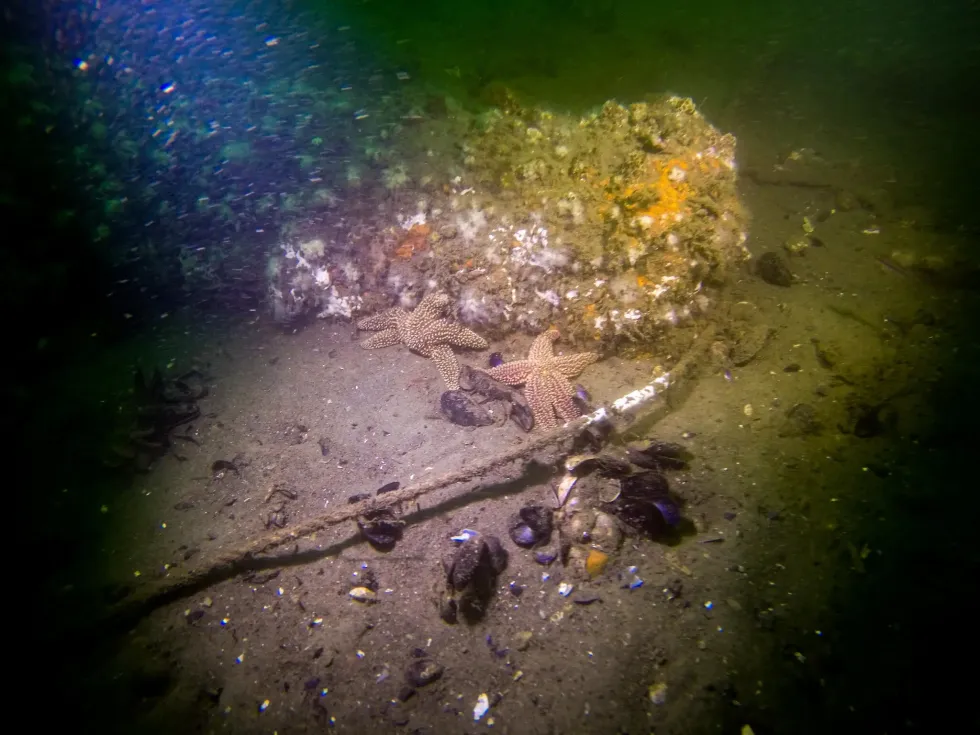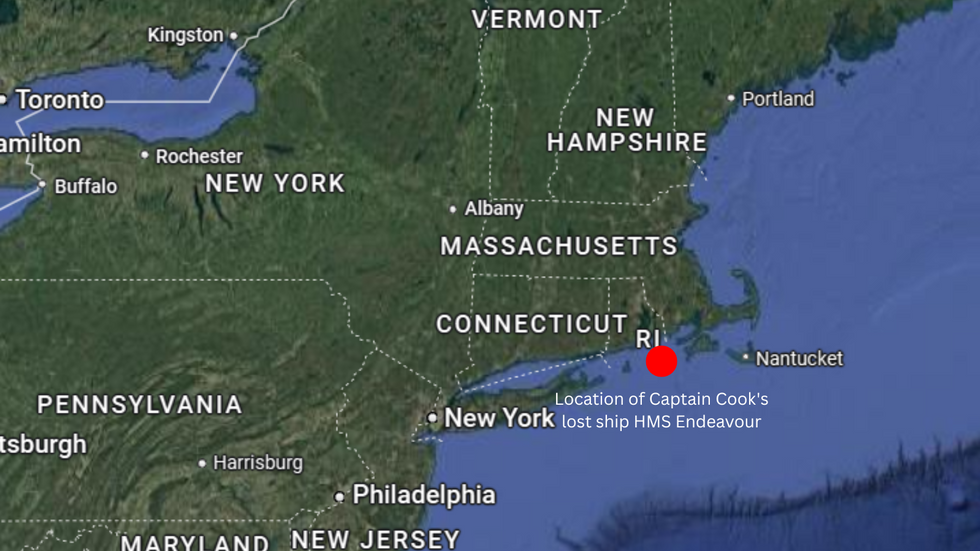Captain Cook's lost ship HMS Endeavour 'found' after 250 years on ocean floor

The ship sank during the American War of Independence in 1778
Don't Miss
Most Read
Latest
Maritime archaeologists have announced the discovery of Captain James Cook's HMS Endeavour 250 years after the vessel sunk to the ocean floor.
The Australian National Maritime Museum identified the historic vessel's remains in Newport Harbour, Rhode Island, designating it as wreck RI 2394.
The Endeavour holds immense historical significance as the first European ship to reach eastern Australia between 1768 and 1771.
During this landmark voyage, the vessel also completed the first circumnavigation of New Zealand's main islands.

A photograph of the RI 2394 where one of the wreck site's four cannons lies on the seafloor
|ANMM
The ship met its end during the American War of Independence in 1778, having been sold and renamed the Lord Sandwich three years earlier.
The discovery represents the combined efforts of a quarter-century of meticulous archaeological investigation.
Daryl Karp, director of the Australian National Maritime Museum, said: "This final report is the culmination of 25 years of detailed and meticulous archaeological study on this important vessel."
The research involved underwater investigations in American waters and extensive studies at institutions worldwide.
LATEST DEVELOPMENTS:

The wreckage site is located near Newport Harbour, Rhode Island
|GETTY
Karp added: "It has involved underwater investigation in the US and extensive research in institutions across the globe. This final report marks our definitive statement on the project."
Researchers compared the wreck with historical plans of Cook's vessel, finding timber positioned precisely where the Endeavour's main and fore masts would have been.
The wreck's measurements matched those recorded in a 1768 survey of the ship.
Wood analysis revealed the timber originated from Europe, aligning with records showing the vessel underwent repairs in 1776.

The ship sank during the American War of Independence in 1778
|This evidence collectively formed what experts called a "preponderance of evidence" supporting the identification.
Kieran Hosty, ANMM archaeologist, said: "The timbers are British timbers. The size of all the timber scantlings are almost identical to Endeavour, and I'm talking within millimetres - not inches, but millimetres."
When ANMM released preliminary findings in 2022, research partners the Rhode Island Marine Archaeology Project denounced the announcement as "premature" and a "breach of contract".
Archaeologist James Hunter acknowledged the challenge of definitive proof, stating: "The chances of finding artefacts that would provide an immediate identification, such as a bell, were very unlikely."











